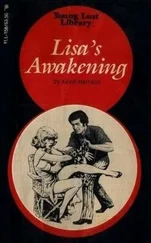Kevin Guilfoile - Cast Of Shadows
Здесь есть возможность читать онлайн «Kevin Guilfoile - Cast Of Shadows» весь текст электронной книги совершенно бесплатно (целиком полную версию без сокращений). В некоторых случаях можно слушать аудио, скачать через торрент в формате fb2 и присутствует краткое содержание. Жанр: Триллер, на английском языке. Описание произведения, (предисловие) а так же отзывы посетителей доступны на портале библиотеки ЛибКат.
- Название:Cast Of Shadows
- Автор:
- Жанр:
- Год:неизвестен
- ISBN:нет данных
- Рейтинг книги:4 / 5. Голосов: 1
-
Избранное:Добавить в избранное
- Отзывы:
-
Ваша оценка:
- 80
- 1
- 2
- 3
- 4
- 5
Cast Of Shadows: краткое содержание, описание и аннотация
Предлагаем к чтению аннотацию, описание, краткое содержание или предисловие (зависит от того, что написал сам автор книги «Cast Of Shadows»). Если вы не нашли необходимую информацию о книге — напишите в комментариях, мы постараемся отыскать её.
Cast Of Shadows — читать онлайн бесплатно полную книгу (весь текст) целиком
Ниже представлен текст книги, разбитый по страницам. Система сохранения места последней прочитанной страницы, позволяет с удобством читать онлайн бесплатно книгу «Cast Of Shadows», без необходимости каждый раз заново искать на чём Вы остановились. Поставьте закладку, и сможете в любой момент перейти на страницу, на которой закончили чтение.
Интервал:
Закладка:
“I’m told different players use the game in different ways. Many people try to live their dreams in the game, hoping to become actors or musicians or famous writers. Some use it to practice – a dry run at real life, if you will – working out scenarios to determine what might happen if they asked for a raise or cheated on a spouse. Many people, oddly, mirror their real life in the virtual world down to every detail, going to work in the morning, ordering lunch from the same places, coaching their kids in Little League. In the gaming vocabulary, these individuals are called ‘True-to-Lifers,’ and they apparently enjoy watching their lives play out realistically on-screen as if it were an animated documentary elevating their mundane lives to something like art.
“Now, when Shadow World was introduced, many people thought it could provide a road map to Utopia here on earth. Through virtual experimentation, we would discover that life truly does offer limitless choices. With Shadow World as a guide, mankind would discover its real potential. We would invent synthetic fuels, find cures for terminal diseases, happen upon new and better systems of governance and diplomacy.
“As you know, that hasn’t happened. Or it hasn’t yet. Six years after its creation, life in Shadow World has become almost an exact copy of life in the real world. The crime rate is about the same. Disease spreads with the same efficiency. Wars between nations occur with the same frequency. Government corruption and corporate malfeasance turn out to be as seductive in Shadow World as they are in this one.
“Why do you think that is? Sociologists who study this sort of thing, which is nice work if you can get it” – laughter – “suggest several possibilities. First of all, the so-called True-to-Lifers make up more than a quarter of the gaming public. In fact, sociologists say these people, replicating their actual lives on the Internet, are critical to the stability of the game. Their presence ensures that Shadow World isn’t populated entirely by aspiring movie stars and rock singers.” Laughter. “In the game, True-to-Lifers aren’t always taking outrageous risks, failing, and starting over. Their lives go on and on, running the insurance businesses and the bakeries and the movie theaters. They are the invisible matter that makes Shadow World so real. So livable. So popular. And that’s the irony. The fantasy world is seductive because it is so very much like our own.
“I have a good friend named Walter Hirschberg, who’s a respected professor at the University of Chicago, and he has another theory: perhaps Utopias can’t exist because in a reasonably free society, happiness is a constant.” Davis paused here at the introduction of an abstract concept. “Of course, it goes without saying that misery would be a constant, too, and some people will be happier than others. But when you add up our talents, our aspirations, our capabilities, our treachery, our selfishness, our generosity, our technology, our addictions, our hope, our anxiety, our love, our anger, you find that collectively we tend toward a certain level of happiness. That level can change slightly, in the short term, but it always works its way back to equilibrium.
“Now, what does any of this have to do with science or liberty? Walter suggests that when we are at our natural level of happiness, restrictions on liberty can only result in a net loss of that happiness.” Applause. “Now, of course we need certain laws to preserve order” – ironic boos – “yes, yes, I know who the anarchists are among us” – laughter – “but laws that seek to restrict liberty because of fear, because of ignorance, because a wrong-headed idealist is trying to construct his own version of Utopia: these laws cause a ripple effect through society, one that affects us all for the worse. The Buckley-Rice Anti-Cloning Act is exactly that kind of unnecessary legislation.” Enthusiastic applause. “And we might even have proof.
“One year ago, inside the game of Shadow World, the United States legislature passed the Buckley-Rice Anti-Cloning Act. The result, in the universe of the game, has been an increase in infant mortality, an increase in reports of clinical depression, an increase in violence committed by mothers suffering from postpartum depression, and an across-the-board increase in the suicide rate. Not much of one, just a few percent, but it didn’t correspond, as such things usually do, to an increase in the real-world suicide rate. Can I tell you for certain this overall decrease in happiness is a direct result of Buckley-Rice? No, I’m not that smart. But I can tell you what Walter Hirschberg would say. I can tell you because I called Walter up and I asked him.
“First I must tell you that Walter, despite his friendship with me, is not a supporter of cloning. He and I have had that ethical debate many times over the years. But even Walter agrees that Buckley-Rice would be a horrible mistake. Laws are not equivalent to ethics. They do not effectively answer questions of whether we should or shouldn’t do things. Laws address whether we can do things, and with respect to cloning, clearly the answer is yes. The mapping of the human genome and the successful, even routine, cloning of man is one of the great accomplishments of our lifetimes, and if the United States Congress tells us, all evidence to the contrary, that we cannot clone stem cells in order to prolong life, cannot use cloning to treat infertility and stop the spread of hereditary disease, cannot seek out every resource and tool at our disposal to reduce the suffering of our patients, they are not creating a better America, they are increasing American misery.”
The applause was kick-started by a chorus of supporting cheers. One of the middle tables stood first, the diners kicking chairs back from the table and straightening their legs in the space between. In a moment, most of the gathered were standing and the applause grew in celebration of the consensus. Davis smiled and let the cheers subside until he could finally hear chair legs rubbing against the thin carpet as the guests returned to their seats.
Davis continued: “This is not meant to end the discussion about cloning. Walter and I debate this issue every time we get together. He suggests that just because we can clone human beings doesn’t mean we should. I tell him he’s answered the wrong question. If we can do something – to increase health, to increase happiness – doesn’t that mean we must?” Applause. “A couple comes into your office. They can’t have children, or they’re afraid to. They ask for your help and you have the ability to help them. How could it possibly be ethical to do otherwise?” Louder applause. “Walter says that what cloning professionals do is remarkable – and I agree, but not for the same reasons. He is amazed that we can take a cell, a fraction of a fingernail, and from that make a human being. I tell him nature has been doing that for years. Conception is still the bigger miracle to me. From two, one. It’s the lower organisms that usually reproduce asexually, after all.
“We do not ‘make people’ as Walter suggests. What we do is give them moms and dads. That truly is a remarkable thing.” Sustained and satisfied clapping.
“I agree with Walter on another matter, however. Our profession must have an ongoing and rigorous discussion concerning the ethics of all our practices. One of the reasons I support the efforts of this organization” – Davis gestured to the CALS banner behind him – “is that a free society must make difficult ethical decisions, must weigh the consequences of its actions, must debate and justify the validity of its works. To live under an oppressive government is to live without ethical dilemmas. In Castro’s Cuba, in Saddam’s Iraq, in the North Korea of Kim Jong Il, ordinary people did not debate whether they should do this or should not do that, only whether they could do this or could do that.
Читать дальшеИнтервал:
Закладка:
Похожие книги на «Cast Of Shadows»
Представляем Вашему вниманию похожие книги на «Cast Of Shadows» списком для выбора. Мы отобрали схожую по названию и смыслу литературу в надежде предоставить читателям больше вариантов отыскать новые, интересные, ещё непрочитанные произведения.
Обсуждение, отзывы о книге «Cast Of Shadows» и просто собственные мнения читателей. Оставьте ваши комментарии, напишите, что Вы думаете о произведении, его смысле или главных героях. Укажите что конкретно понравилось, а что нет, и почему Вы так считаете.












